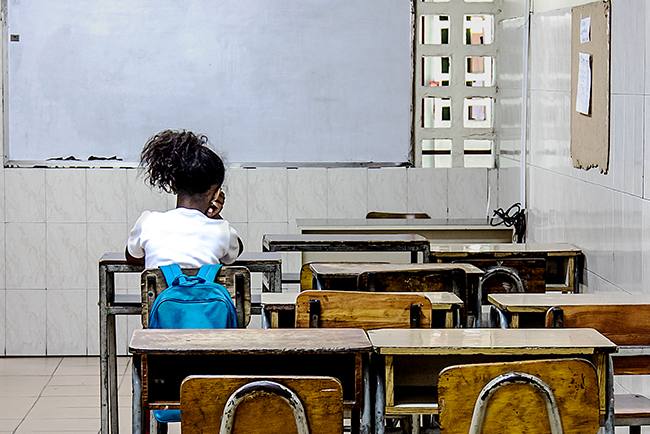Right to Education

The CHE in Venezuela has its origins in factors that have undermined institutions with serious prejudices to the life and well-being of all people, including the development process of all children and adolescents and their future as most are deprived of the right to education, as a result of the destruction of national capacities to guarantee the availability, accessibility, acceptability and adaptability of primary and secondary education that meets basic learning needs, as well as respect for freedom and plurality of thought.
The human right to education belongs to the sphere of personal autonomy and is a means of enjoying an educated, intelligent and active mind, with freedom and breadth of thought.
Education must be available through educational institutions and programs in sufficient quantity and under appropriate conditions, and be accessible to all, materially and economically, without discrimination; acceptable in form and substance to students and parents; and adaptable to the needs of changing societies and communities and to varied cultural and social contexts.
Furthermore, it should be oriented towards the full development of the human personality, effective participation in a free society, and inter-ethnic, national, racial and religious understanding, and should always consider the best interests of the students.
National Report
70% of students do not attend class regularly on average and at least 15% are severely behind in school, mainly due to lack of food and drinking water.
Dropout from the school system has increased by 60 per cent. There are more than 1,000,000 children out of school, increasing the entrenchment of poverty,
In 50% of the schools in Venezuela, endemic diseases and postural ailments in students caused by lack of hygiene, food and desks, are recurrent.
Malnutrition is exacerbated by a School Feeding Program that arrives twice a week with irregular, insufficient, poor quality and low calorie supplies.
Basic education teachers cannot afford the food basket and social welfare services are inoperative, causing migration or a change of occupation in order to survive.
90% of teachers and at least 10% of students are discriminated against through the Carnet de la Patria, a policy document required for official procedures.
80% of managers and teachers have been appointed without a fair selection process. Young people from the Socialist Mission "Chamba Juvenil" are employed as teachers.
80% of the representatives cannot afford the school basket and in 90% of the schools they have to pay for office materials, cleaning and sometimes food.
Violence within schools has increased by 75 per cent due to organized crime, micro-drug trafficking, hate violence and attacks on students and teachers.
The risk for vulnerable groups is increased: Most schools are not prepared to handle stu-dents with disabilities, and early pregnancy occurs in 5% of students